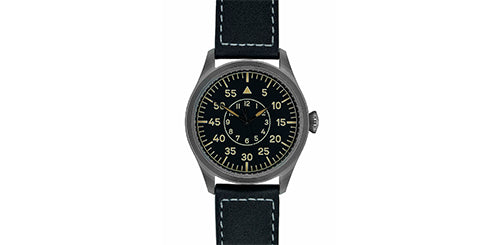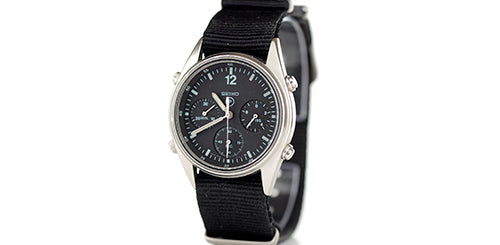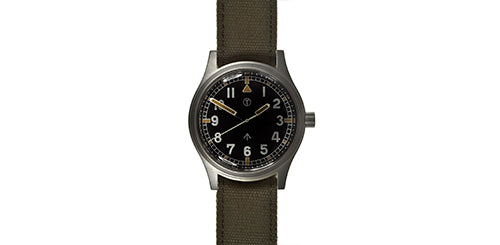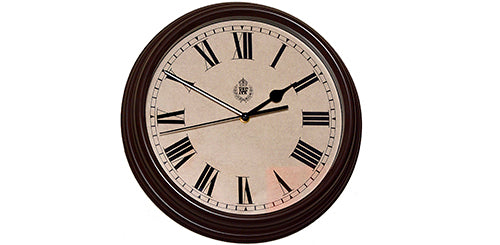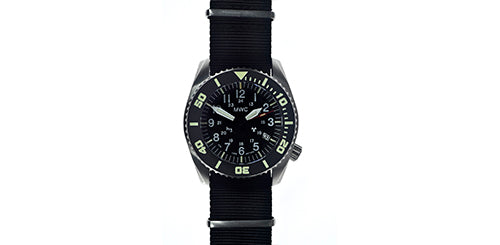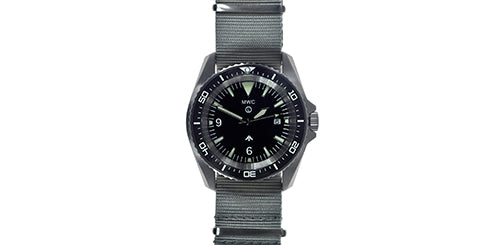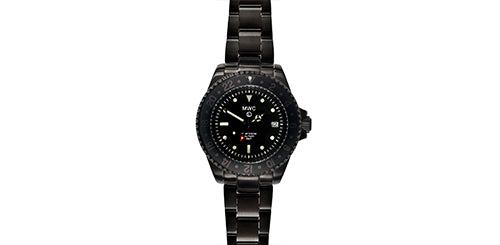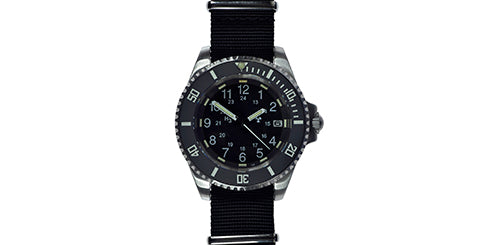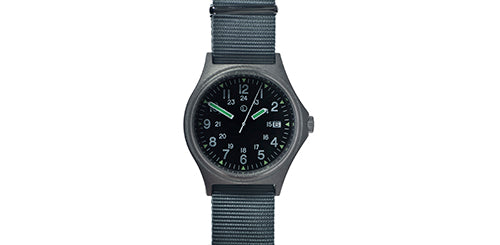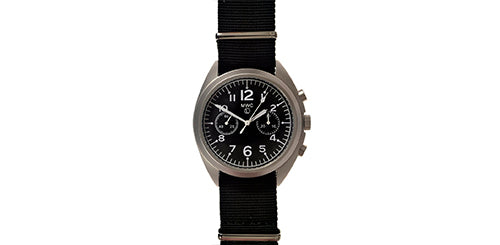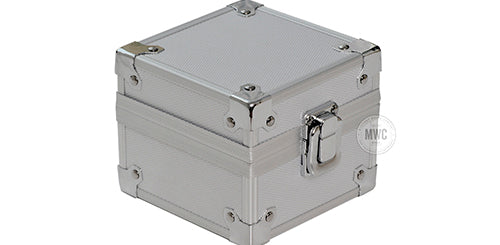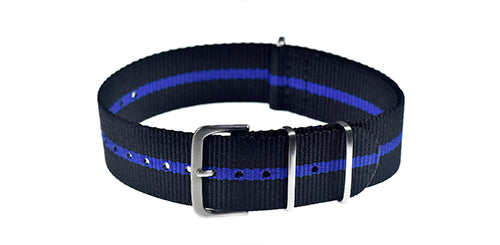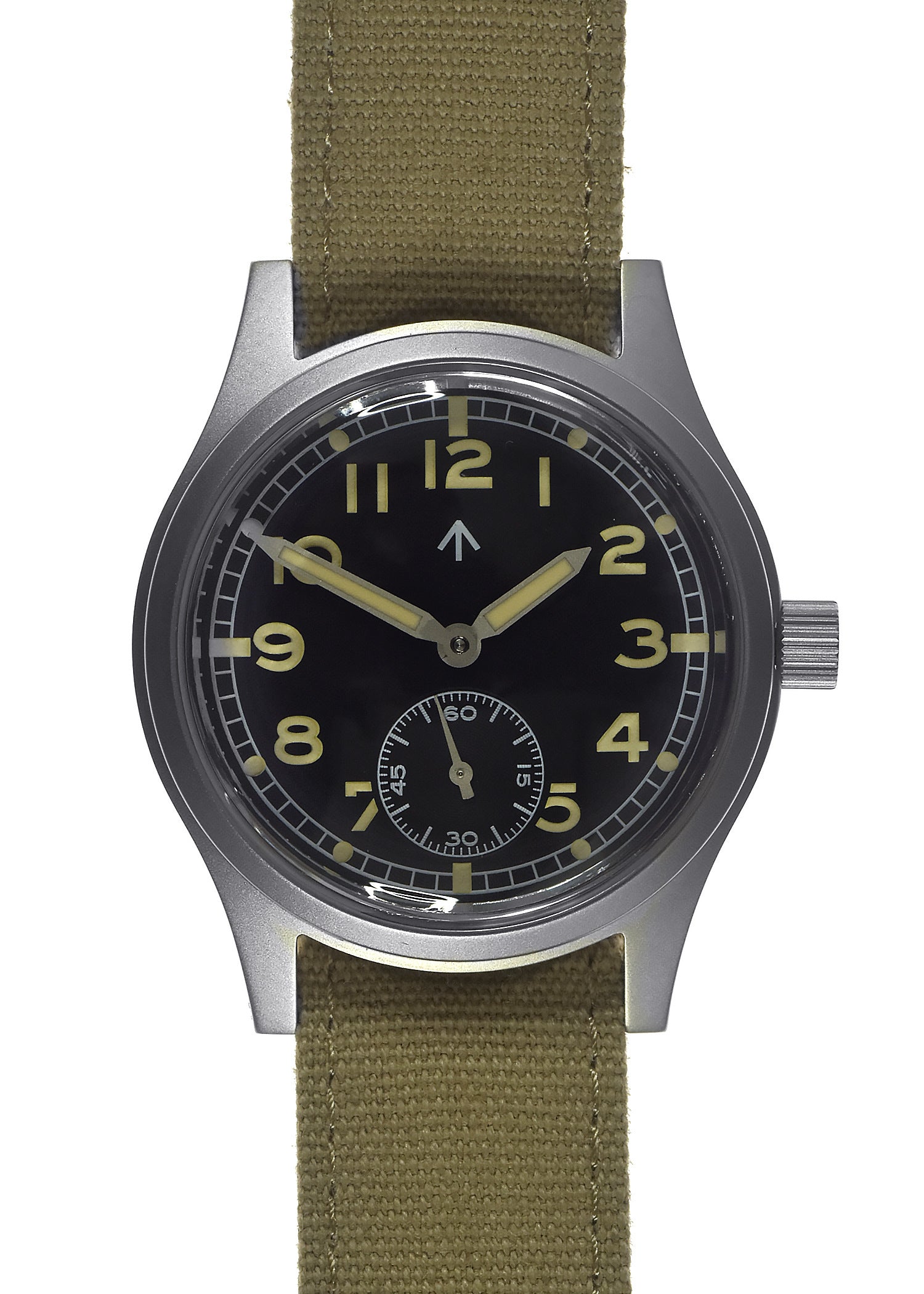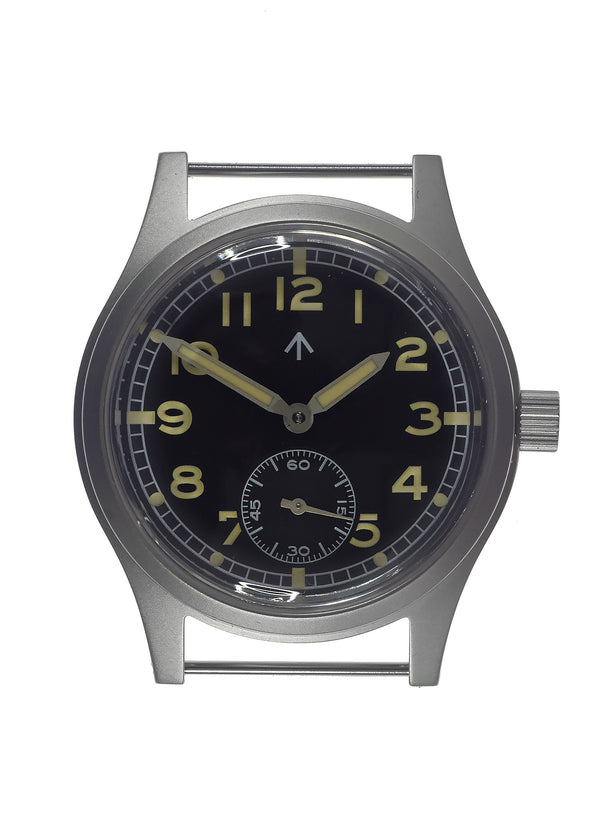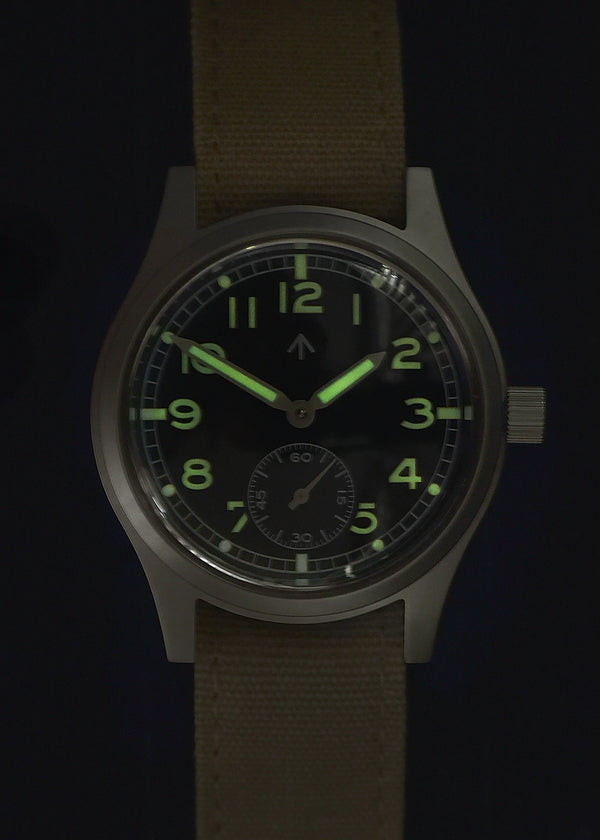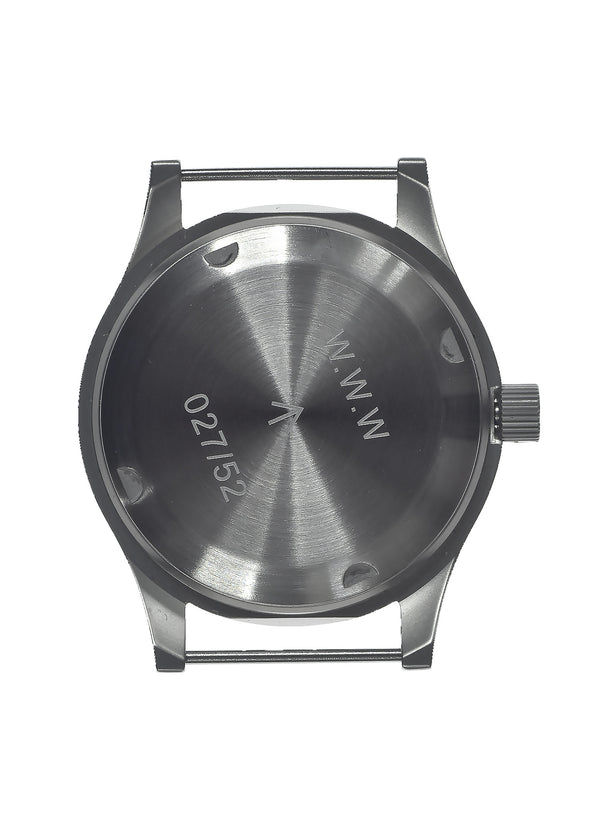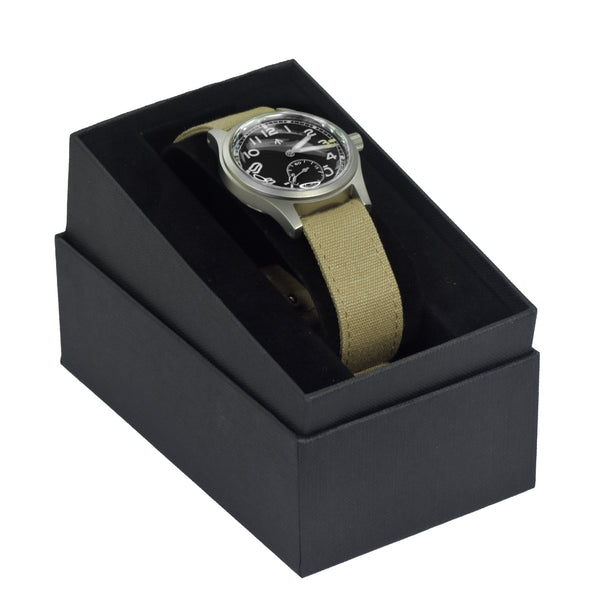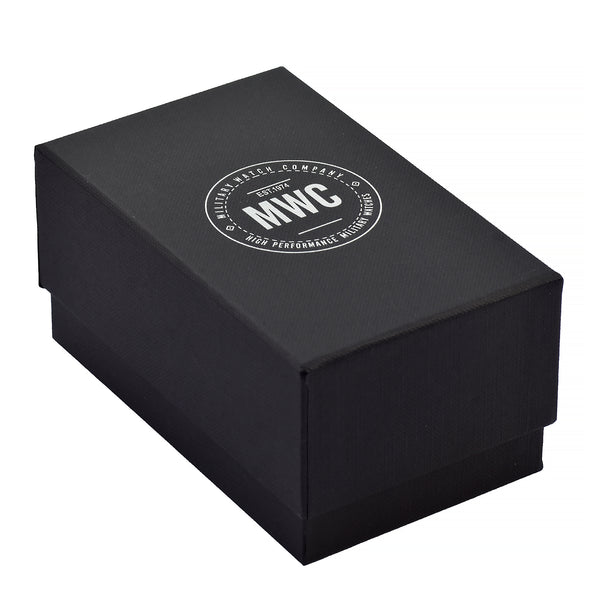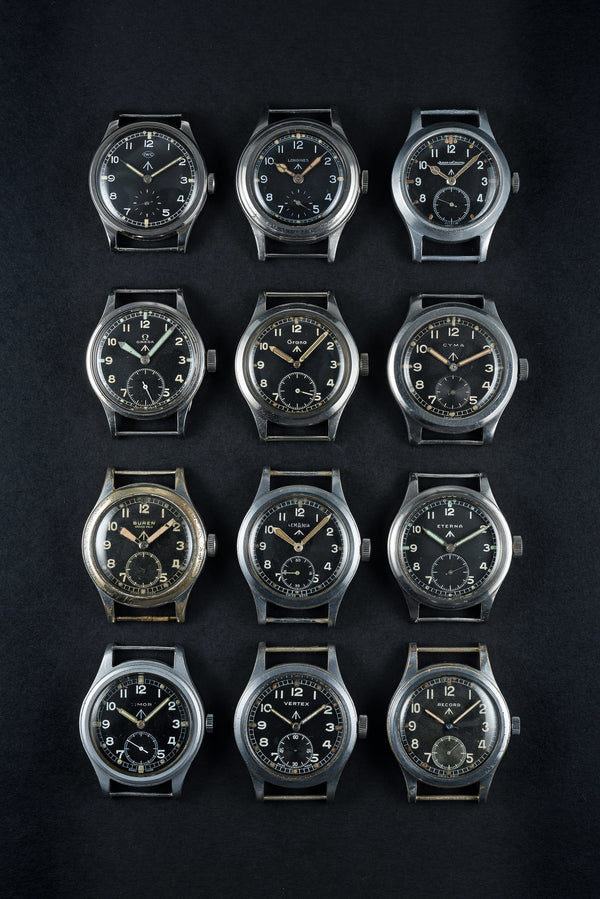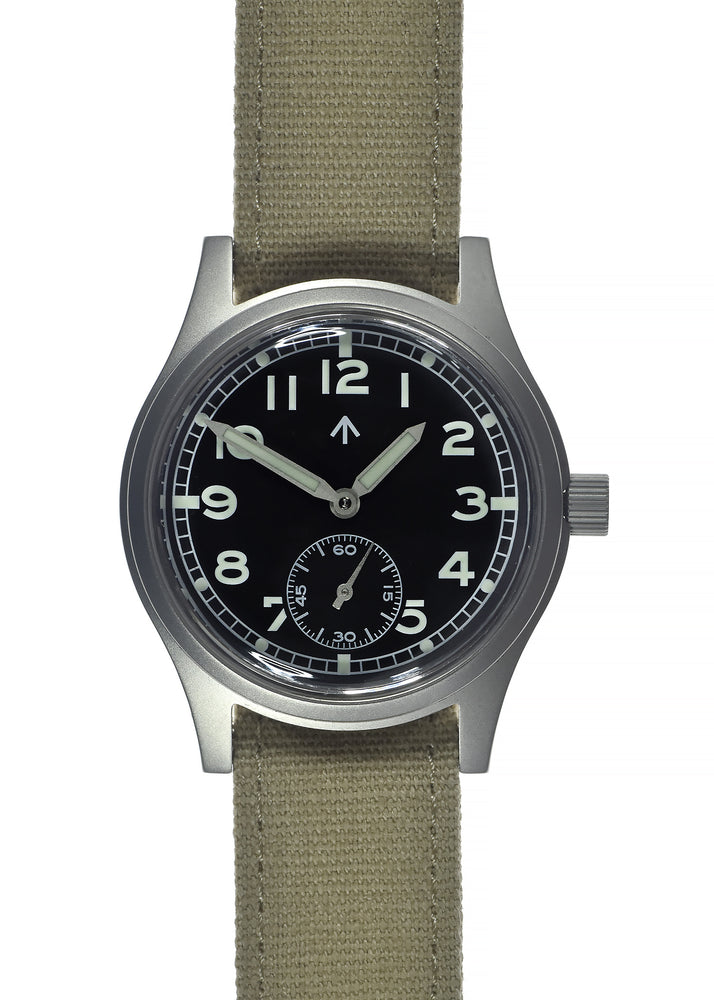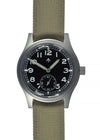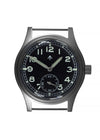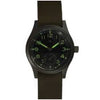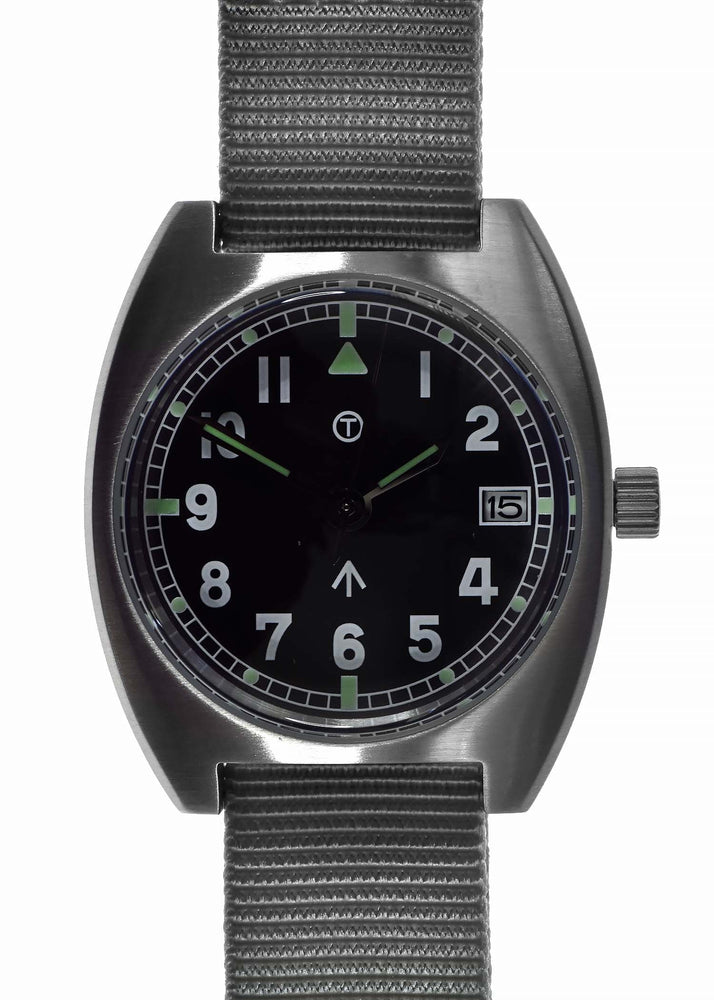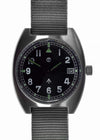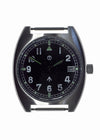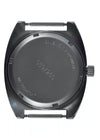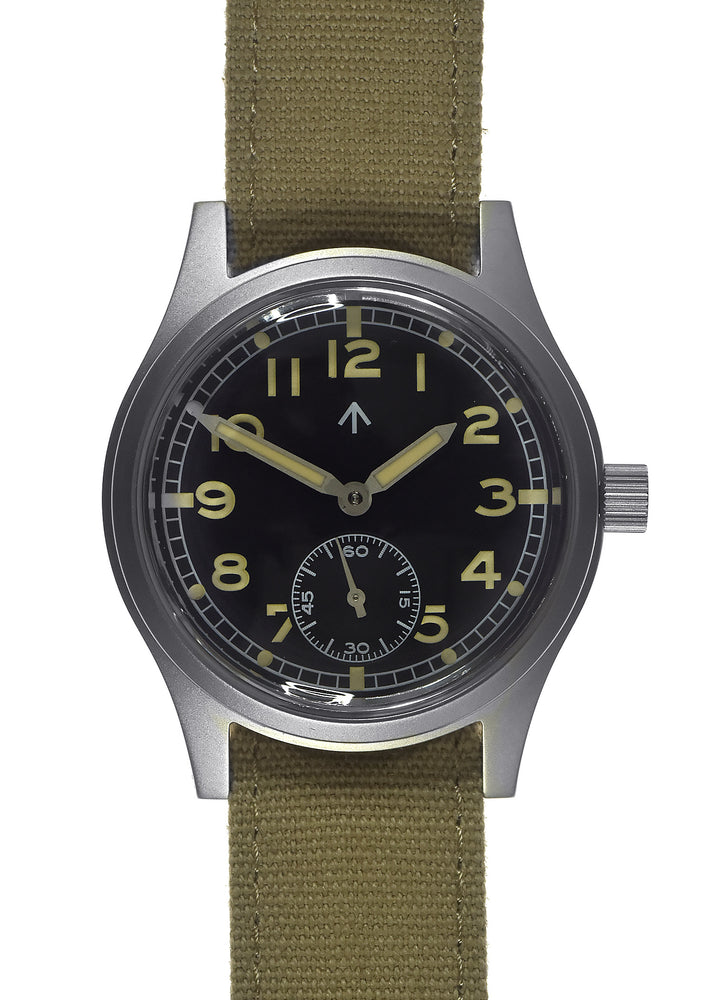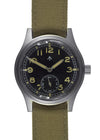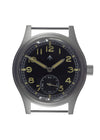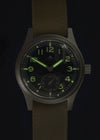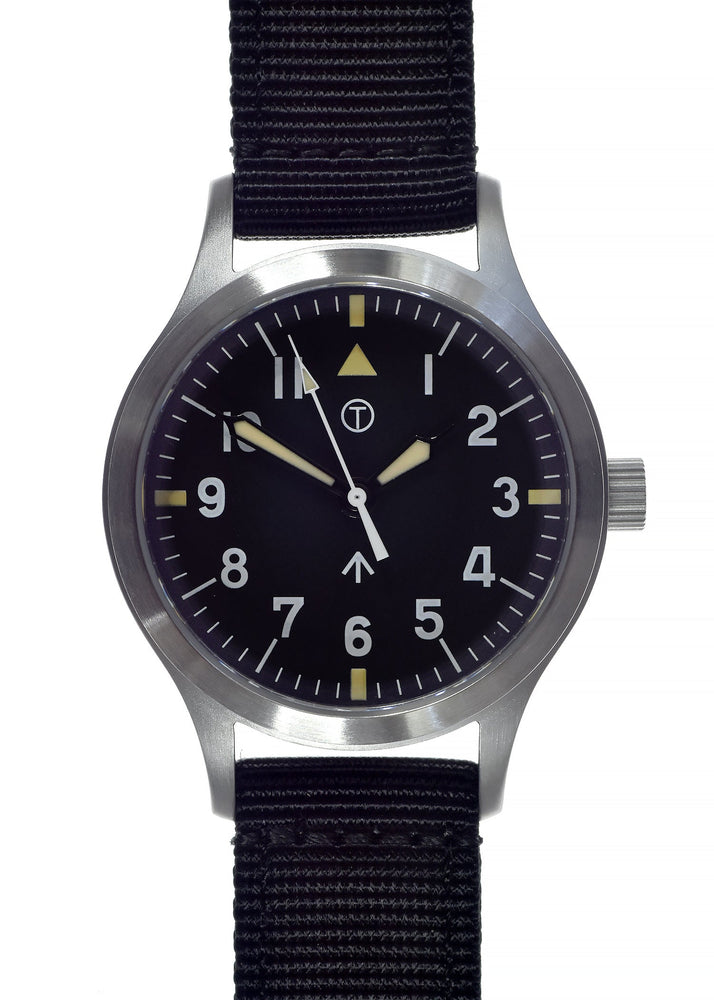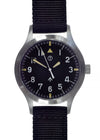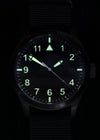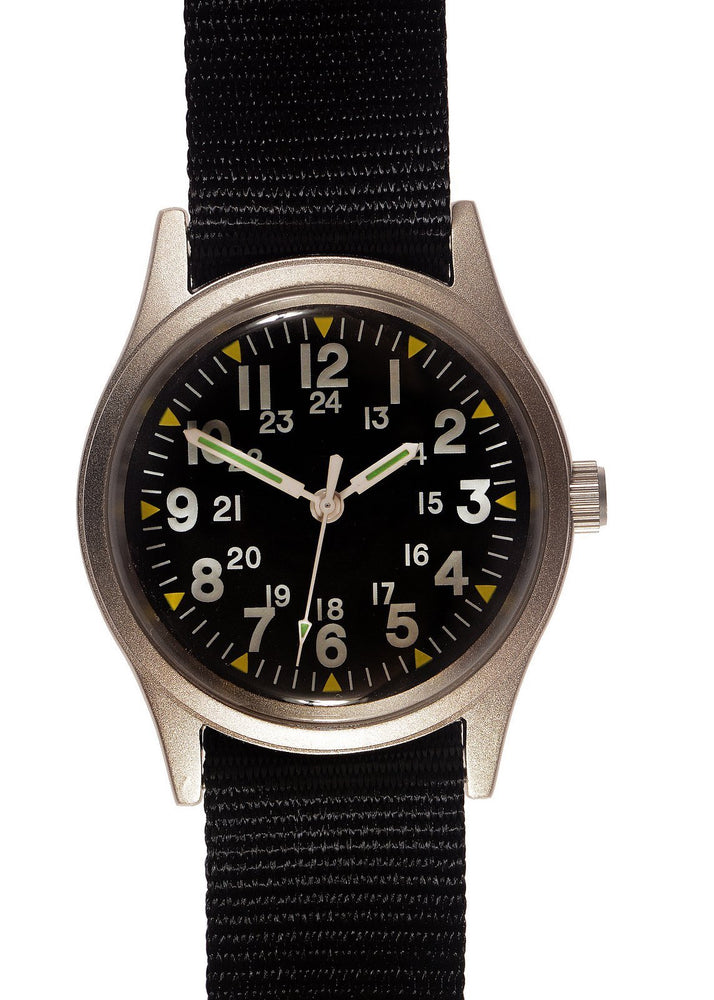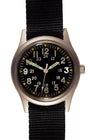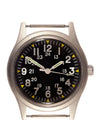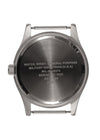MWC 1940s/1950s "Dirty Dozen" Pattern General Service Watch with a 17 Jewel Hand Wound Mechanical Movement
SKU Code: DD/01/AU/2/HW
This recreation of a "Dirty Dozen" type watch is inspired by the original 1940s/1950s timepieces and features a 17-jewel hand-wound mechanical movement with a 36-hour power reserve.
Key Features:
- Authentic Design: Based on the classic military watches from the 1940s and 50s, capturing the spirit of the original "Dirty Dozen" watches.
- Robust Construction: Heavy stainless steel satin finish case made from Military Grade 316L stainless steel.
- Clear Readability: Black dial with luminous markings and a subsidiary dial for the seconds.
- Historical Accuracy: Comes with a historically accurate canvas strap as used in the 1940s and 50s.
Specifications:
- Case Diameter: 36.5 mm excluding crown, 39 mm including crown
- Lug to Lug: 43 mm
- Thickness: 13.5 mm
- Lug Type: Solid fixed strap bars
- Dial Colour: Black
- Case Material: 316L stainless steel
- Caseback: 316L stainless steel
- Crown: 316L stainless steel
- Water Resistance: 5 ATM (50 m)*
- Movement: 17 Jewel Hand-wound with 36-hour power reserve
- Glass: Plexiglass / Perspex
- Luminous Material: Retro Luminova
- Serial Number: Engraved on caseback
- Strap: 18 mm 1950s Pattern Canvas
- Guarantee: 24 Months
Historical Reference:
The final image showcases the original 12 "Dirty Dozen" watches made by companies such as Buren, Cyma, Eterna, Grana, Jaeger Le-Coultre, Lemania, Longines, IWC, Omega, Record, Timor, and Vertex. While MWC was not a manufacturer at the time, having been founded in 1974, this watch captures the essence and spirit of the originals.
Choose this MWC Ltd Edition Classic Aviator Watch for a perfect blend of historical design and modern functionality.
* For details of water resistance ratings etc go to Water Resistance
** Photo Credit: Watches Of Knightsbridge
For anyone interested in the history of the Dirty Dozen these links show the 12 original watches and explain the history.
.
To wind the watch from an empty state to full, you will need approximately 30 turns of the crown. (Most other hand-wound watches require 40 or more turns, so this movement needs somewhat less.) Once fully wound, the watch boasts an average power reserve of around 36 hours. It's crucial to exercise caution during the winding process.
For those who use the watch daily and wind it consistently, such as every morning, a slight variation in the number of turns will not significantly impact the overall power reserve, as it will be well below the maximum of around 36 hours.
Some users have reported that 25 turns are sufficient when winding every 24 hours. This seems logical because the watch would not need a full wind after 24 hours. Nevertheless, individual preferences may vary, and most owners develop a sense of the optimal winding routine within the first few days of ownership.
Above all, it's crucial to emphasize the importance of not overwinding the watch, which could lead to locking up issues or, worse, damage or breakage of the mainspring. Adhering to the recommended winding procedures ensures the longevity and proper functioning of the timepiece.
Note: Overwinding occurs when a mechanism is wound beyond its designated stopping point, posing the risk of damage or destruction to the winding mechanism. It's important to note that overwinding is a concern primarily for manually-wound watches, not for their automatic counterparts, which normally cannot be overwound.






